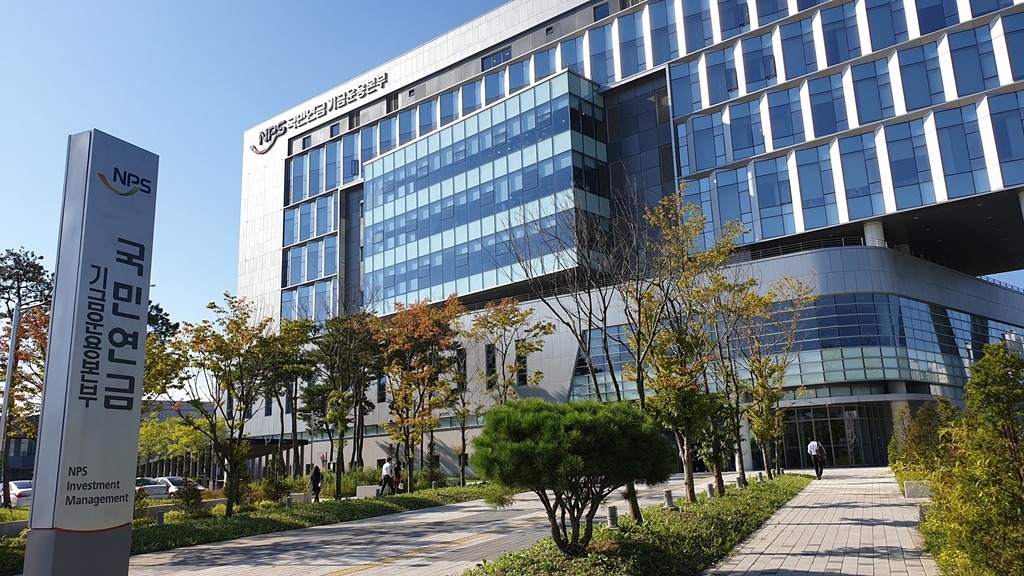How to Cash-Out Refinance an Investment Property in 2024

Turn your rental property’s equity into opportunity
In 2024, many real estate investors are opting to cash-out refinance investment property as a strategic move to unlock equity.
A cash-out refinance on an investment property allows you to replace your existing mortgage with a new, larger loan, providing you with a lump sum of cash that can be used for various purposes.
Whether you’re looking to make home improvements, expand your real estate portfolio, or invest in your LLC’s growth, a cash-out refinance on an investment property can provide the capital you need to take your investment strategy to the next level.
Check your cash-out refinance eligibility. Start here
In this article (Skip to…)
What is a cash-out refinance on an investment property?
A cash-out refinance on an investment property is similar to a traditional cash-out refinance, except it involves a property that is not your primary residence.
This type of loan allows you to access the equity you’ve built up in your investment property by replacing your existing mortgage loan with a new, larger loan.
The difference between the new loan amount and the outstanding balance on your current mortgage is given to you as a lump sum of cash, which you can use for various purposes, such as making improvements to the property, purchasing additional rental properties, or consolidating debt.
How to cash-out refinance investment property
Cashing out equity from your investment property can be a smart way to access funds for renovations, additional investments, or other financial goals.
Check your cash-out refinance eligibility. Start here
Here’s a step-by-step guide on how to cash-out refinance investment property:
- Determine your eligibility: Ensure you meet the lender’s requirements for credit score (typically 680+), property equity (usually 30%+), and seasoning (often 6+ months since purchase).
- Gather necessary documentation: Collect proof of income, tax returns, bank statements, rental agreements, property insurance, and any other required documents.
- Calculate your available equity: Determine the current value of your property and subtract your outstanding mortgage balance to estimate your available equity for a cash-out refinance.
- Shop for mortgage lenders: Compare rates, terms, and fees from multiple lenders to find the best cash-out refinance option for your investment property. Be sure to disclose that the property is used for investment purposes.
- Apply for the refinance: Choose a lender and submit your application along with the required documentation. Be prepared to provide information about your investment experience and plans for the cash-out funds.
- Obtain an appraisal: The lender will order an appraisal to determine the current market value of your investment property and confirm your equity position.
- Await underwriting and approval: The lender will review your application, credit, income, and property information to make a decision on your cash-out refinance request. If approved, review and sign the final loan documents, pay any closing costs, and receive your cash-out funds.
Remember, cashing out equity from your investment property can impact your cash flow and overall returns, so be sure to consult with a financial advisor, trusted loan officer, or tax professional to determine if it aligns with your investment strategy and goals.
Requirements for a cash-out refinance on an investment property
Eligibility to cash-out refinance investment property requires both homeowners and their properties to meet specific lender criteria that ensure financial stability.
Check your cash-out refinance eligibility. Start here
Minimum credit score
Most lenders require a minimum credit score of 620–680 for a cash-out refinance on an investment property, although some may require scores as high as 700.
Minimum cash reserves
Lenders typically require borrowers to have cash reserves equivalent to 6–12 months of mortgage payments after the refinance. You may also be required to hold cash reserves equal to 2% to 6% of any unpaid loan balances on properties other than the one being refinanced and your primary residence.
Minimum home equity
To qualify for a cash-out refinance on an investment property, you’ll need to have sufficient equity in your home. Equity is the difference between the current value of your home and your outstanding mortgage balance.
Lenders typically require a minimum of 20–30% equity in the property to approve a cash-out refinance. This means your new mortgage loan amount cannot exceed 70–80% of your home’s appraised value.
Maximum loan-to-value ratio (LTV)
The maximum LTV for a cash-out refinance on an investment property is usually 75%–80%, depending on the lender and the type of rental property.
Waiting periods
If you recently purchased your investment property, some lenders may require a waiting period or “seasoning period” (usually 6–12 months) before allowing a cash-out refinance.
Debt-to-income ratio (DTI)
Lenders generally prefer a DTI of 36% or lower for investment property cash-out refinances, although some may allow up to 45% with compensating factors.
Property condition
The investment property must typically be in good condition and meet the lender’s appraisal requirements to qualify for a cash-out refinance.
Property occupancy requirements
To be eligible to cash-out refinance an investment property, the owner cannot permanently occupy the property. In other words, the property should be rented out to tenants or used as a second home that is not the owner’s primary residence. Lenders may require proof of rental income or a signed lease agreement to confirm the property’s investment status.
How much equity can I cash out of my investment property?
Typically, lenders allow you to borrow up to 75%–80% of your property’s value. Although the amount of equity you can access through a cash-out refinance on your investment property depends on several factors, including your lender’s requirements, your property’s value, and your creditworthiness.
Check your cash-out refinance eligibility. Start here
Example: If your investment property is worth $500,000 and you owe $300,000 on your current mortgage, you have $200,000 in equity. If your lender allows you to borrow up to 75% of the property’s value, you could potentially access up to $75,000 in cash through a cash-out refinance ($500,000 x 0.75 = $375,000 – $300,000 = $75,000).
Types of investment properties eligible for a cash out refinance
When it comes to cash-out refinancing, lenders typically define an investment property as a real estate asset purchased primarily to generate rental income or profit from market appreciation. Investment properties that may qualify for a cash-out refinance on investment property include:
- Rental properties: Single-family homes, multifamily dwellings, or multi-unit properties bought to lease out to tenants and generate monthly rental income. These can be long-term or short-term rentals, as long as the primary purpose is generating income.
- Vacation rentals: Properties in tourist destinations that are primarily used for short-term or seasonal rentals. These properties may qualify for an investment property cash-out refinance if, the majority of the time, they are rented out and generate income.
Second homes and fix-and-flip properties generally don’t qualify for an investment property cash-out refinance because they are not primarily used for generating rental income and may not meet lenders’ criteria for seasoning and property valuation.
Investment property refinance rates
Mortgage interest rates for a cash-out investment property loan tend to be higher than other loan programs. This is due to the perceived risk associated with investment properties, as lenders consider them less secure than owner-occupied homes.
Find your lowest refinance rate. Start here
As of 2024, investment property cash-out refinance rates are typically 0.5% to 1% higher than rates for primary residence cash-out refinance loans.
Example: If the average mortgage rate for a primary home cash-out refi rate is 6%, an investment property cash-out refi rate might range from 6.5% to 7%. However, rates can vary widely depending on the lender, loan terms, and borrower qualifications.
The best thing you can do when shopping for a cash-out refinance on investment property is to shop mortgage rates from multiple lenders.
When is a cash out refinance a good idea?
Still on the fence about whether cashing out equity is right for you? Here are four reasons why it can be beneficial to cash-out refinance investment property.
Find your lowest refinance rate. Start here
- Unlocking equity for improvements: Access your property’s appraised value to invest in upgrades that enhance the tenant experience and potentially boost market value.
- Smarter debt management: Cash-out refinancing an investment property can allow you to consolidate higher-interest debts, leading to more manageable monthly payments and possible tax benefits.
- Real estate portfolio expansion: Utilize unlocked equity to grow your investment portfolio or finance improvements that attract higher-paying tenants.
- Lower interest rates: If current mortgage rates are lower than your existing rate, refinancing can reduce your monthly payments while allowing you to cash out equity.
- Diversifying investments: Cash-out refinancing can free up cash to invest in other asset classes, such as stocks or bonds, helping to diversify your investment portfolio.
The pros and cons of cash-out refinancing investment property
When considering ways to leverage your property’s value, you might think about a cash-out refinance on your investment property. This financial move can open new opportunities but comes with its drawbacks. Here’s what to weigh before diving in:
Find your lowest refinance rate. Start here
Pros
- Access to a lump sum of money for property improvements, other investments, or portfolio diversification.
- Potential tax deductions on the interest paid on the refinanced amount (consult a tax professional).
- Opportunity to secure better loan terms, possibly reducing interest rates and monthly payments.
- Ability to reinvest the cash in the market, potentially expanding your real estate footprint or branching out into other investments.
Cons
- Cash-out refinancing comes with closing costs that can take a bite out of the funds you receive.
- Increased mortgage balance, potentially extending the time it takes to pay off your property.
- There is a risk of foreclosure if you fail to keep up with the new loan terms.
- Market fluctuations may affect your property’s value and financial strategy.
Before cash-out refinancing an investment property, carefully consider the pros and cons to determine if it aligns with your financial goals.
Alternatives to cash-out refinancing investment property
While opting to cash-out refinance investment property is a popular choice for many investors seeking to tap into their property’s equity, it’s by no means the only strategy available.
Home equity line of credit (HELOC)
A HELOC is a revolving line of credit secured by your home that functions similarly to a credit card. During the draw period, you can borrow money up to a limit and pay interest only on the borrowed amount, providing flexibility without refinancing your current mortgage.
Check your HELOC options. Start here
Home equity loan
A home equity loan is a second mortgage that provides a lump sum of cash based on your property’s equity while leaving your current mortgage intact. This option is beneficial for those with a favorable interest rate on their primary mortgage.
Check your home equity loan options. Start here
Personal loan
For those not wishing to cash-out refinance investment property, a personal loan could be a consideration. Personal loans are based on creditworthiness rather than home equity and can offer a quick source of funds without using the property as collateral. However, they often come with higher interest rates compared to secured loans.
Peer-to-peer lending
Investment property owners may consider peer-to-peer lending or private financing as alternatives to cash-out refinancing their investment property. These options can provide competitive lending without the strict requirements or lengthy processes of traditional bank financing.
Delayed financing: Cash-out refinance for investment property bought with cash
“Delayed financing” refers to buying a home with cash, then reimbursing the purchase with a refinance. Because there are no loans on an all-cash purchase, any subsequent refinance is a cash-out one.
Check your cash-out refinance eligibility. Start here
Normally, the buyer would need to wait six months to get reimbursed. That ties up cash for a long time—not ideal for a smart investor.
In mid-2011, Fannie Mae introduced the “delayed financing exception.” Investors may now receive a cash-out refinance just days after closing.
Delayed financing guidelines:
- The buyer paid cash for the home
- The buyer must document the source of funds for purchase
- Loans or liens opened to buy the home must be paid off with the new loan
- A title search must confirm no financing on the purchased home
Keep all documentation for the home purchase if you plan to use the delayed financing exception, especially a final Closing Disclosure showing your closing date and loan terms.
FAQ: How to cash-out refinance investment property
Verify your cash-out refinance eligibility. Start here
Yes, property owners can release equity from a rental property through a cash-out refinance. This involves replacing the existing mortgage with a new loan amount that includes the equity being withdrawn.
The maximum LTV for an investment property purchase is 80–85%, requiring a 15-20% down payment. For a cash-out refinance on an investment property, the maximum LTV is typically 70–75%, depending on the lender and loan type.
Closing costs on a cash-out refinance range from 2-5% of the new loan amount, similar to a traditional refinance. These costs include fees such as origination and underwriting, but not real estate agent commissions.
Using a cash-out refinance on an investment property to pay off high-interest credit card debt can be a smart move, as it consolidates debt under a mortgage with a lower interest rate. However, suitability depends on factors like equity amount, credit score, and debt-to-income ratio.
Refinancing a rental property can be more challenging than refinancing an owner-occupied primary residence due to stricter credit requirements and LTV ratios. While options may be more limited, many property owners find it achievable with research and shopping around.
No, FHA loans cannot be used to cash-out refinance an investment property. FHA loans are exclusively available for owner-occupied primary residences. A conventional loan is required to cash-out refinance an income-earning property.
Compare lenders that cash-out refinance investment property
As you consider the potential financial benefits of cash-out refinancing your investment property, remember that the right lender can make all the difference in maximizing your return.
Don’t leave money on the table. Take the first step towards unlocking your property’s equity and empowering your financial strategy.
Shop quotes from multiple lenders and find the best deal for your investment needs by clicking the link below. Your portfolio deserves the best—ensure you have the right partner in your corner.
Time to make a move? Let us find the right mortgage for you
link





